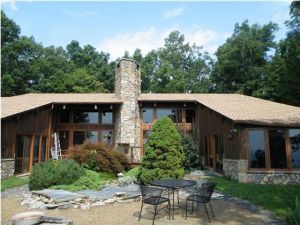We tend to think of Moses being the only person who divided large bodies of water in the Bible, but there were three others.
The prophet Elijah at the Jordan:
2 Kings 2:7-8
7 Fifty men from the sons of the prophets came and stood facing them from a distance while the two of them stood by the Jordan. 8 Elijah took his mantle, rolled it up, and struck the waters, which parted to the right and left. Then the two of them crossed over on dry ground.
His successor, Elisha, at the Jordan:
2 Kings 2:13-14
13 Elisha picked up the mantle that had fallen off Elijah and went back and stood on the bank of the Jordan. 14 Then he took the mantle Elijah had dropped and struck the waters. “Where is the LORD God of Elijah?” he asked. He struck the waters himself, and they parted to the right and the left, and Elisha crossed over.
The famous scene with Moses:
Exodus 14:15-22
15 The LORD said to Moses, “Why are you crying out to Me? Tell the Israelites to break camp. 16 As for you, lift up your staff, stretch out your hand over the sea, and divide it so that the Israelites can go through the sea on dry ground. 17 I am going to harden the hearts of the Egyptians so that they will go in after them, and I will receive glory by means of Pharaoh, all his army, and his chariots and horsemen. 18 The Egyptians will know that I am Yahweh when I receive glory through Pharaoh, his chariots, and his horsemen.” 19 Then the Angel of God, who was going in front of the Israelite forces, moved and went behind them. The pillar of cloud moved from in front of them and stood behind them. 20 It came between the Egyptian and Israelite forces. The cloud was there in the darkness, yet it lit up the night. So neither group came near the other all night long. 21 Then Moses stretched out his hand over the sea. The LORD drove the sea back with a powerful east wind all that night and turned the sea into dry land. So the waters were divided, 22 and the Israelites went through the sea on dry ground, with the waters like a wall to them on their right and their left.
And last, Moses’ successor, Joshua at the Jordan.
Joshua 3:9-16 (HCSB)
9 Then Joshua told the Israelites, “Come closer and listen to the words of the LORD your God.” 10 He said: “You will know that the living God is among you and that He will certainly dispossess before you the Canaanites, Hittites, Hivites, Perizzites, Girgashites, Amorites, and Jebusites 11 when the ark of the covenant of the Lord of all the earth goes ahead of you into the Jordan. 12 Now choose 12 men from the tribes of Israel, one man for each tribe. 13 When the feet of the priests who carry the ark of the LORD, the Lord of all the earth, come to rest in the Jordan’s waters, its waters will be cut off. The water flowing downstream will stand up in a mass.” 14 When the people broke camp to cross the Jordan, the priests carried the ark of the covenant ahead of the people. 15 Now the Jordan overflows its banks throughout the harvest season. But as soon as the priests carrying the ark reached the Jordan, their feet touched the water at its edge 16 and the water flowing downstream stood still, rising up in a mass that extended as far as Adam, a city next to Zarethan. The water flowing downstream into the Sea of the Arabah (the Dead Sea) was completely cut off, and the people crossed opposite Jericho.
In spite of all these miracles, we have to remember that Elijah, Elisha, Moses, and Joshua did not divide the waters. God did. They were simply the people who God worked through to make these miracles happen. It is like when someone asks for prayers for healing, and they give credit to their pulling through to the people who prayed. We must always remember the One who answers prayers. We must pray, certainly, but it is important to remember the One we are praying to, the author of healing.




























You must be logged in to post a comment.